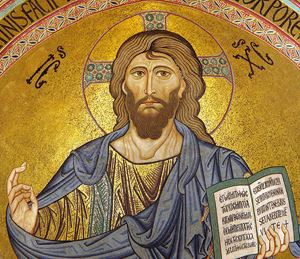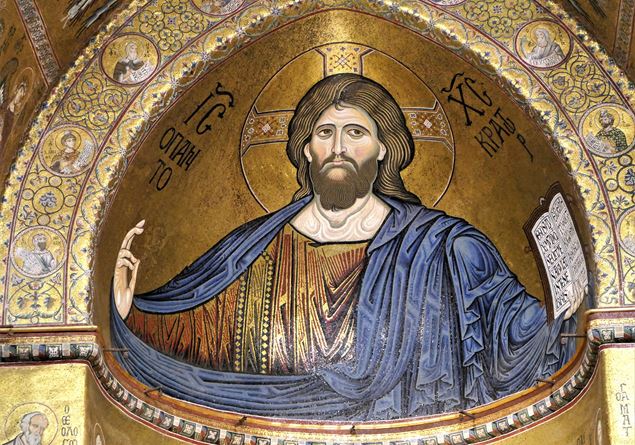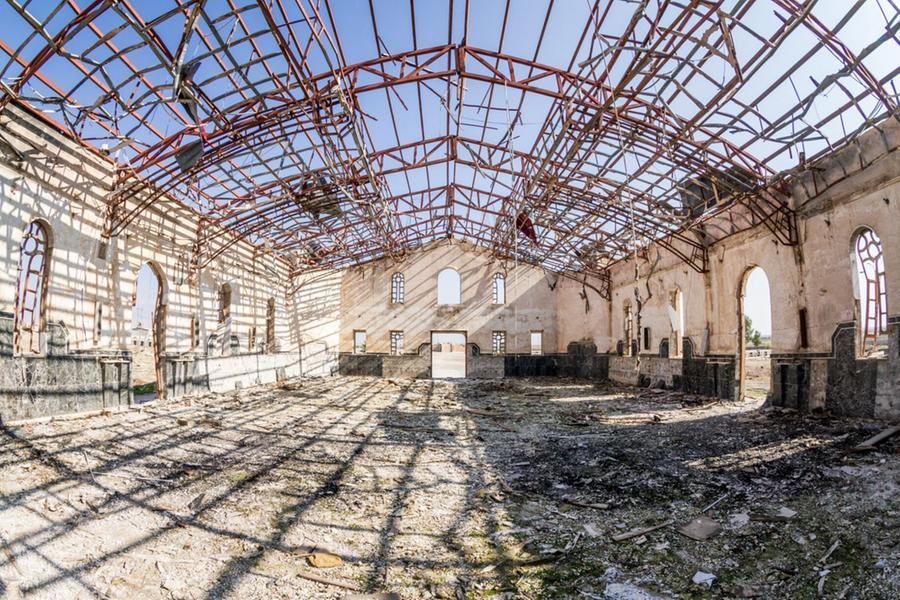It is the solemnity that concludes the liturgical year, falls in the last days of November and celebrates the kingship of Christ, Lord of time and history, beginning and end of all things. The liturgical color is white. In addition to Catholics, it is also celebrated by Anglicans, Presbyterians and some Lutherans and Methodists.
Depiction of Christ the King in Jan van Eyck’s Mystical Lamb polyptych
How did this party come about?
It was introduced by Pope Pius XI, with the encyclical Almost primas of 11 December 1925to crown the Jubilee which was celebrated in that year. It is little known and, perhaps, a little forgotten. As soon as he was elevated to the papal throne in 1922, Pius XI first explicitly condemned “Catholic” liberalism in his encyclical Ubi arcano Dei. He understood, however, that a disapproval in an encyclical would not be of much use, given that the Christian people did not read the papal messages. The Pontiff then thought that the best way to educate him was to use the liturgy.
Hence the origin of Almost primasin which he demonstrated that the kingship of Christ necessarily implied (and implies) the duty for Catholics to do everything in their power to tend towards the ideal of the Catholic State: “To accelerate and hasten this return (to the social kingship of Christ) with their action and work would be the duty of Catholics”. He therefore declared to establish the feast of Christ the King, explaining his intention to oppose it thus “a very effective remedy for that plague which pervades human society. The plague of our age is so-called secularism, with its errors and its wicked incentivesthe”.
What does the encyclical “Quas primas” say?
There Quas Primas proclaims the celebration of the “permanent and universal social reality of Jesus Christ” against the atheistic and secularized State, “plague of our time”. The Pope’s concern was to clarify that the evils of the world came from having increasingly distanced Christ «and his holy law» from the practice of their life, from the family and from society, «but also that there could never be hope of lasting peace between peoples, as long as individuals and nations had denied and rejected the empire of Christ the Savior».
Necessary and indispensable for the magisterium of the Church was therefore the Restoration of the Kingdom of Our Lord and the proclamation of Christ as King of the Universe. Pope Ratti’s analysis of a modern world that voluntarily decided and decides to do without God is very timely: «Now, if we command that Christ the King be venerated by all the Catholics of the world, with this We will provide for the needs of the present times, bringing a very effective remedy to that plague that pervades human society. The plague of our age is so-called secularism with its errors and its wicked incentives; (…) this impiety did not mature in a single day but had been smoldering in the bowels of society for a long time. In fact, the empire of Christ over all people began to be denied; the Church was denied the right – which derives from the right of Jesus Christ – to teach the people, to make laws, to govern the people to lead them to eternal happiness. And little by little the Christian religion was equated with other false religions and indecorously lowered to their level; therefore it was subjected to civil power and was left almost to the discretion of princes and magistrates. It went even further: there were those who thought of replacing the religion of Christ with a certain natural religious feeling. Nor was there any shortage of states which thought they could do without God and placed their religion in irreligion and contempt for God himself.”

The Christ Pantocrator of the Cefalù Cathedral
What is the meaning of Christ’s kingdom?
This holiday coincides with the last Sunday of the liturgical year, thus indicating that Christ the Redeemer is Lord of history and time, to which all men and other creatures are subject. He is the Alpha and the Omega, as the Apocalypse sings (Rev 21, 6). Jesus himself, before Pilate, categorically affirmed his kingship. To Pilate’s question: “So are you a king?”, Christ replied: “You say so, I am a king” (Jn 18:37).
Pius His kingdom, Pius The Kingdom of which Jesus speaks in the Gospel is not, therefore, of this world, that is, it does not have its origin in the world of men, but in God alone; Christ has in mind a kingdom imposed not by force of arms (it is no coincidence that he tells Pilate that if his Kingdom were a worldly reality his people “would have fought so that he was not handed over to the Jews”), but through the force of Truth and Love. Men enter it, preparing themselves through penance, for faith and for baptism, which produces an authentic interior regeneration. This King requests of his subjects, continues Piusnot only the soul detached from riches and earthly things, the meekness of customs, the hunger and thirst for justice, but also that they deny themselves and take up their crossThis Kingdom, however, already mysteriously present, will find full fulfillment at the end of time, at the second coming of Christ, when, as Supreme Judge and King, he will come to judge the living and the dead, separating, like the shepherd, “the sheep from the goats” (Mt 25, 31 ff.).
It is a reality revealed by God and always professed by the Church and, most recently, by the Second Vatican Council, which taught in this regard that “here on earth the Kingdom is already present, in mystery; but with the coming of the Lord, it will reach perfection” (constitution “Gaudium et spes”).
What is the act of consecration to Christ the King?
In the three days preceding the solemnity of Christ the King, devotees recite a specific Triduum. The invocations ask in particular that the Heart of Jesus triumph over all obstacles to the kingdom of his love. Through the intervention of the Madonna, then, it is hoped that all peoples – disunited by the wound of sin – will submit to the love of Christ.
Pope Leo XIII, on June 11, 1899, he consecrated the Church, the world and all mankind to Christ. The formula of the prayer, if it is recited publicly on the solemnity of Jesus Christ King of the universe, acquires plenary indulgence. The act of consecration is full of reminders of Christ’s love for all humanity. A love that made itself visible precisely in the total donation of himself on the cross.
The prayer is also a request for collective forgiveness and reads among other things: «Many, unfortunately, never knew you; many, despising your commandments, rejected you. O most benign Jesus, have mercy on both one and the other and draw everyone to your most sacred Heart. O Lord, be the king not only of the faithful who never departed from you, but also of those prodigal sons who abandoned you.”










